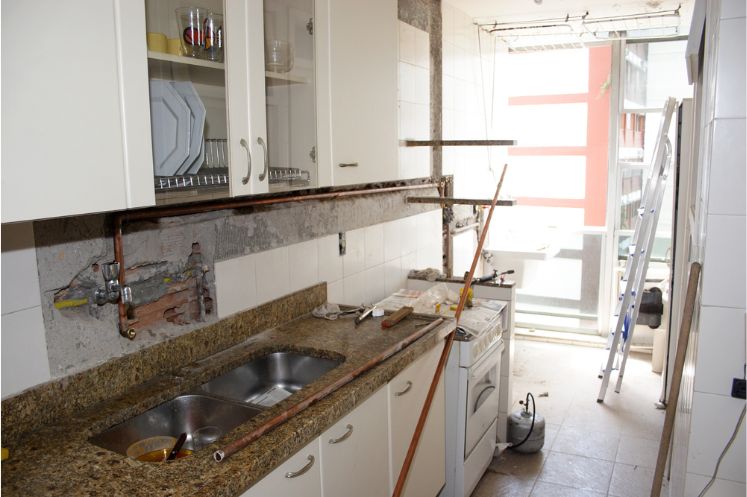What exactly is a comprehensive reform?
A complete renovation of a property involves a complete renovation that covers multiple aspects of the property, from the internal structure to the finishes. This type of reform is usually carried out when you want to completely update the space, correct structural problems, improve the functionality and energy efficiency of the property, or simply change the aesthetics of the house to adapt it to new needs or personal tastes.
What are the key elements in a comprehensive reform?
What structural changes are being made?
In a comprehensive renovation, structural changes may include the modification of walls, the installation of new beams to support changes in the layout of the space, or even the complete overhaul of the building’s façade. These changes require careful planning and, often, approval of plans by local authorities due to their impact on the safety and structure of the building.
Contact our architectural firm
Which facilities are affected?
Electrical and plumbing installations are often completely replaced during a comprehensive renovation to meet modern standards and ensure long-term functionality. This includes new plumbing, wiring, heating and air conditioning systems, as well as the integration of home automation technology for more efficient home management.
What energy improvements are considered?
How can energy efficiency be improved?
A crucial part of the integral reform is the improvement of the energy efficiency of the property. This is achieved by installing thermal insulation in walls, ceilings and floors, replacing windows with double or triple glazing options, and incorporating renewable energy systems such as solar panels or geothermal heating systems.
What aesthetic changes are included?
How are finishes selected?
Finishes play an important role in the visual transformation of the property. In a comprehensive renovation, new flooring, tile, paint, and other finishes are selected as part of the effort to update the look of the property. The selection of high quality materials not only improves the aesthetics but also the durability and value of the property.
What legal and administrative considerations are necessary?
What permits are required?
Before beginning a comprehensive renovation, it is crucial to obtain the necessary permits from local authorities. This includes building permits to ensure that renovation plans comply with all local zoning and building regulations. Failure to obtain the proper permits can result in significant fines and legal problems.


